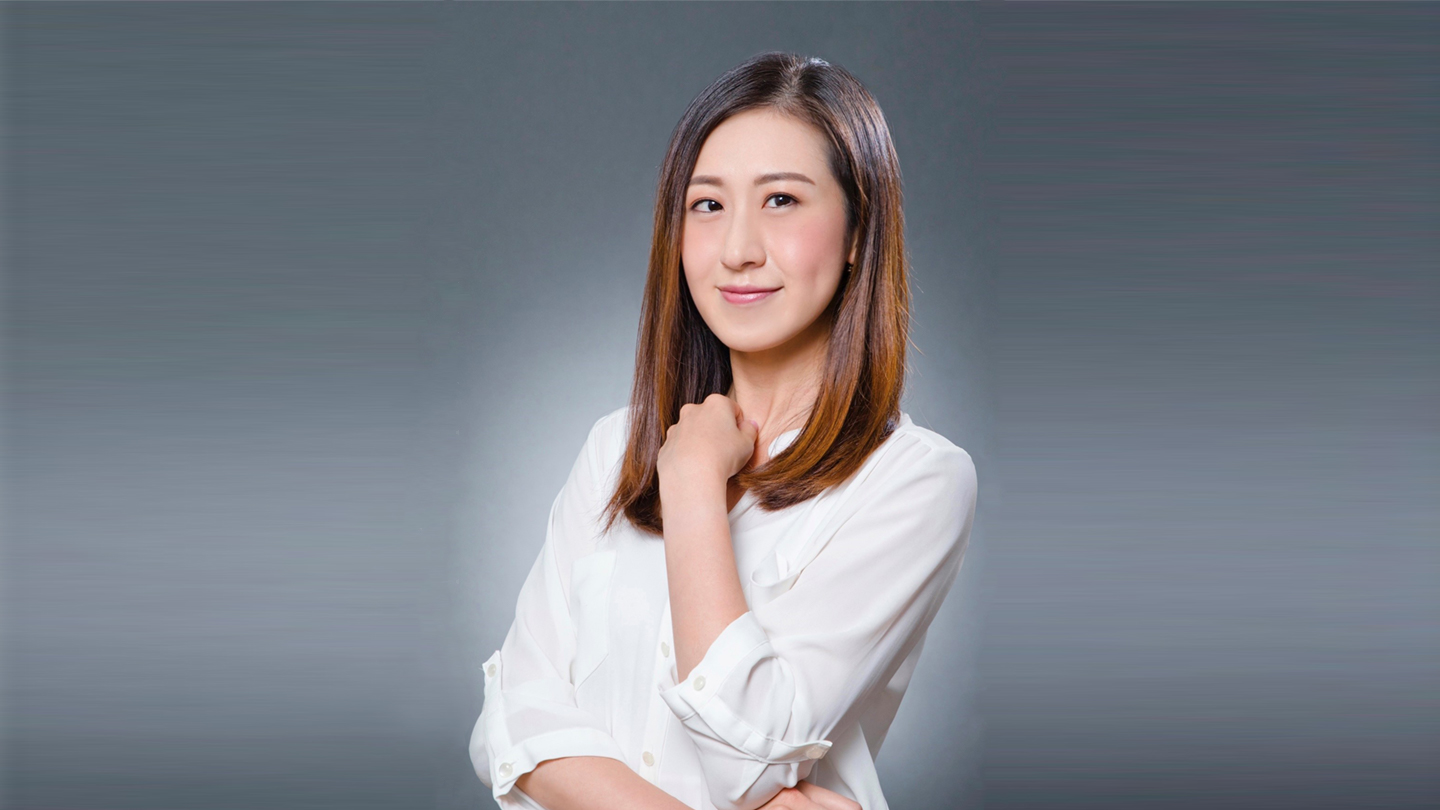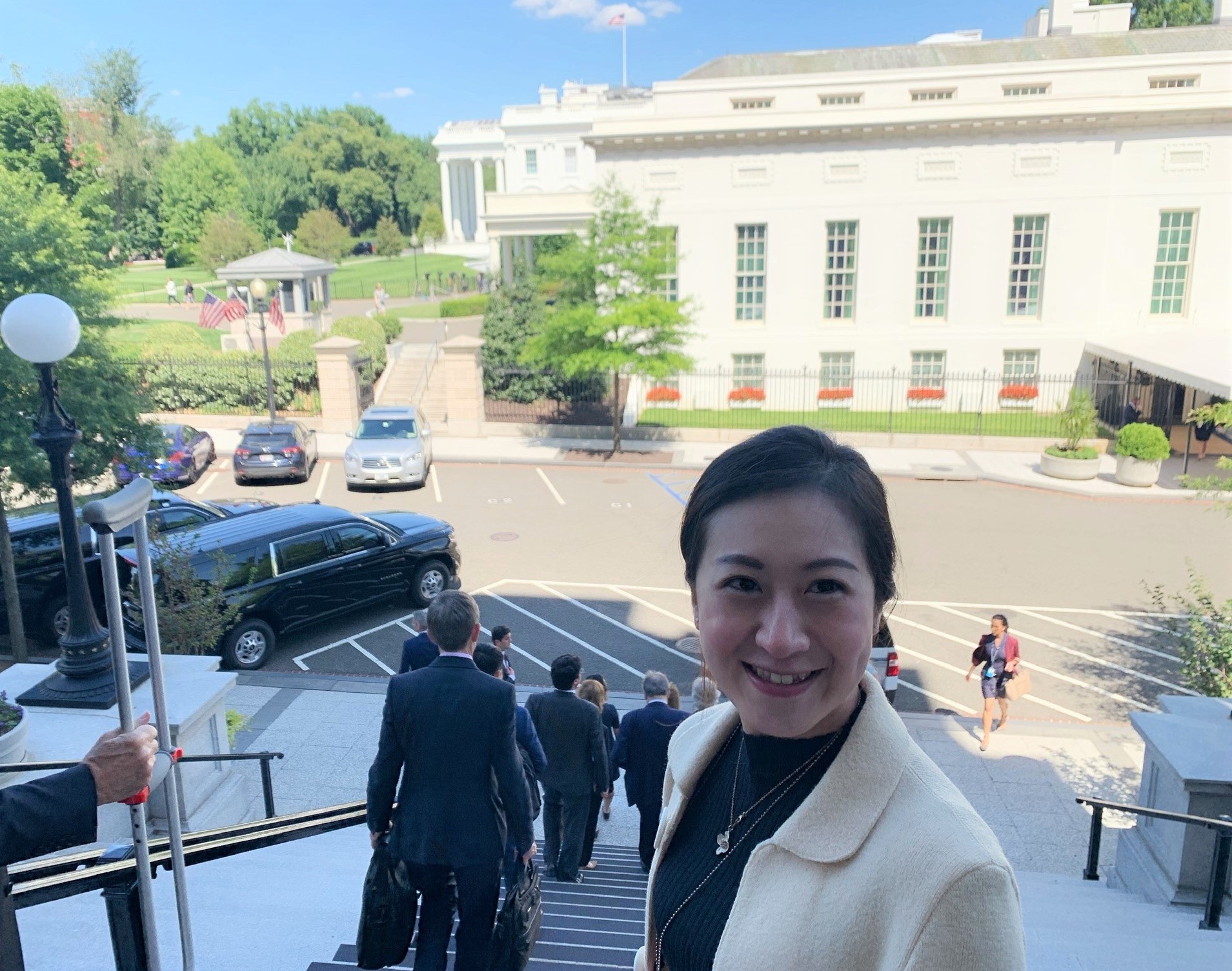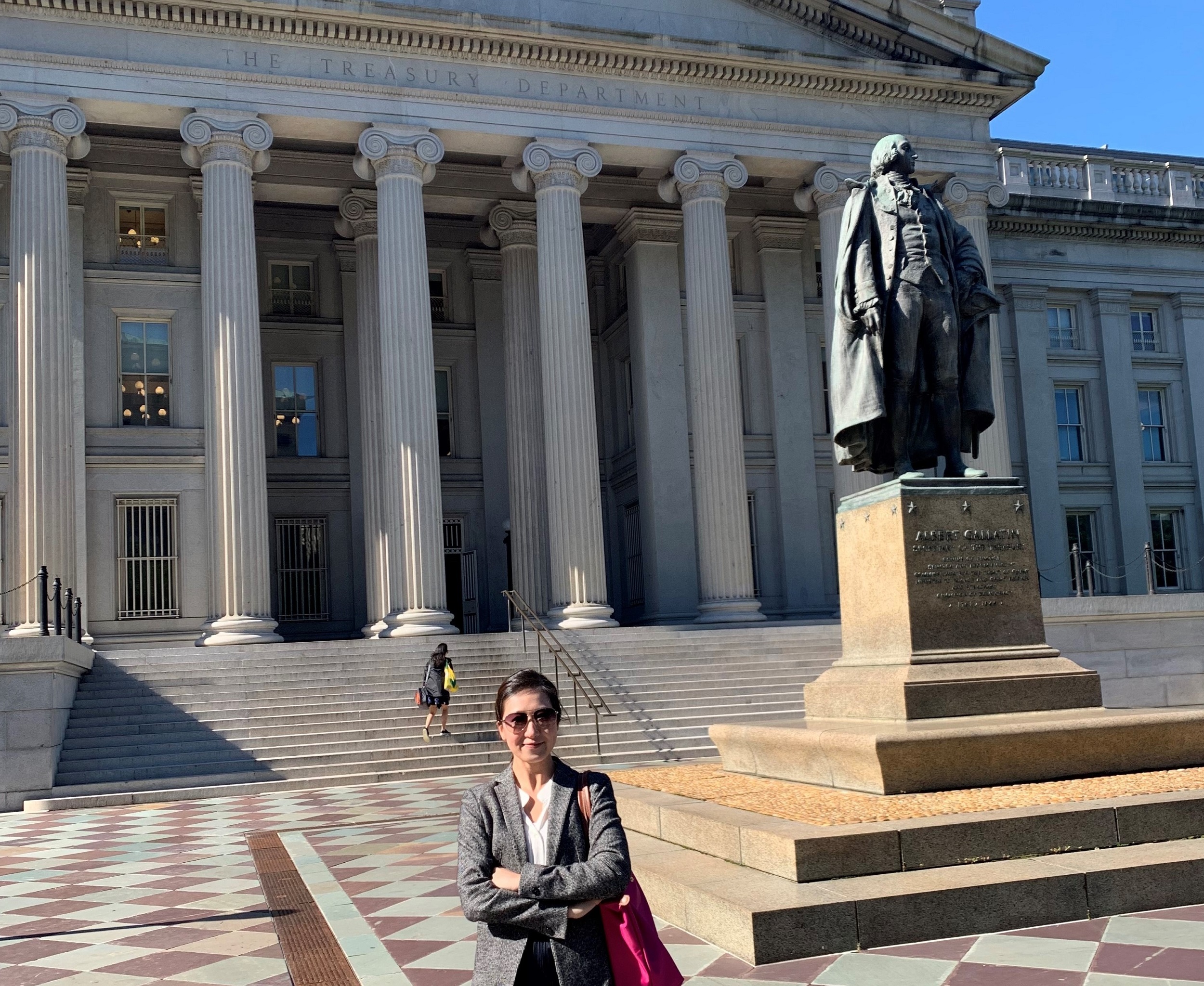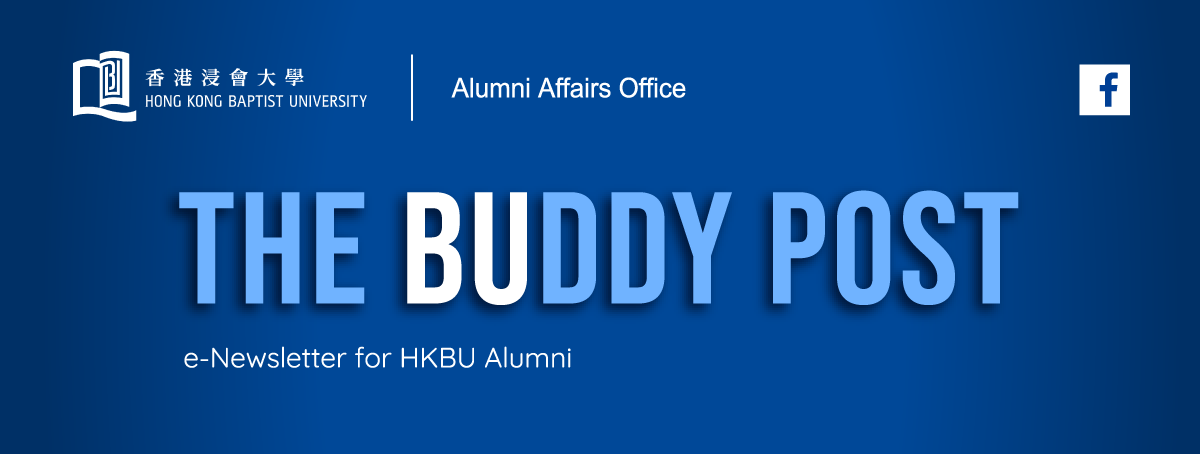启迪・新世代
自1956年成立以來,浸大已培育了逾140,000位畢業生,他們在各行各業馳騁,當中不少事業有成。我們邀請了這些前途無量的新世代校友,讓他們分享開展事業的心得及成功的秘訣。
徐穎汶校友分享
從蘇富比轉戰香港美國商會 (只供英文版本)

徐穎汶校友
Alumna Queenie Tsui (English Language & Literature) began her career at the Press Department of Sotheby’s. She then joined the American Chamber of Commerce in Hong Kong (AmCham HK) in 2013 as Assistant Manager, Government Relations & Public Affairs. AmCham HK is one of the largest American Chambers outside the US, the largest international chamber in Hong Kong and one of the most dynamic and influential international business organisations in the Asia-Pacific region. Alumna Tsui is willing to embrace the transition from an auction house to an international chamber of commerce. With her open mind, and sophisticated communication and people management skills, alumna Tsui has smoothly climbed up the career ladder. She was promoted, in less than a decade, to Director, Communication & Government Affairs and a member of the Management team of AmCham HK in 2020.
1. What was your career plan upon graduation from HKBU? How did you get your first job at Sotheby’s?
I already had a clear direction of my career path during my bachelor years. So, after graduation, I got enrolled in the Juris Doctor programme of CUHK. (In fact, when I first researched about this programme while I was still in high school, I found that it was then quite new in Hong Kong). As a passionate art hobbyist, I focused, in my final year at law school, my thesis on legal issues relating to museums and cultural heritage, which led me to consider being a lawyer, such that I could start my career in the compliance field in an auction house. I searched for a contact of Sotheby’s HR department and decided to try my luck. Unfortunately, there were no job vacancies back then, and I was told that Sotheby’s legal teams are all either based in London or New York. Nonetheless, after having an amicable conversation with the HR team and a round of written test, Sotheby’s offered me a floater position (a.k.a. temporary staff) at the Press team. That’s how I started my first job at Sotheby’s, and even though it was only for a short period there, I enjoyed every moment of it!
徐校友於蘇富比工作時曾於傳媒活動上擔任公司的模特兒讓傳媒拍照。
2. The scope of services provided by Sotheby’s and AmCham HK is different and they are serving different targets. What inspired you to switch from working in a multinational auction house to an international chamber of commerce?
When I decided to take up the position as a “floater”, I was also aware that the position would last for only three months. I started looking around for opportunities where legal knowledge and relevant skillsets are required and the Communications & Government Affairs department of AmCham HK offered me the opportunity. I did not then really think much about the differences between the two organisations, but was focusing more on the exposure I would get as a fresh graduate, which would be important for career advancement.
3. What were the differences between working in Sotheby’s and AmCham HK? What efforts you had to make to adjust to the differences?
Sotheby’s and AmCham HK are basically two different worlds – one is about fine art, jewels, watches, and wine, and the other is all about trade and investment. If we look at this from a commodity’s perspective, working at an auction house is conceptually more straightforward – the vintage art pieces are the “products” to be sold. Whereas a business chamber is essentially a community for dialogues and exchanges, it does not have its own “products” but only “ideas” (i.e. a congregation of thought leadership) to influence (as opposed to selling to) the market and the community at large. Luckily there was also a PR function in my role when I first started at the Chamber, so I did not have to struggle a lot in the beginning. It was nevertheless a steep learning curve to transit myself from the artsy, luxury industry to something that is exactly the opposite. For example, art and cultural publications were my primary work and reading materials at Sotheby’s, but at AmCham what I see and breathe could range from banking, international treaties, sustainability issues, innovation & technology, smart cities, supply chain and logistics, to government policies, just to name a few. The more I see and the more people I meet, the less I feel I know, and the more I want to find out and understand. So, there is never a dull day at AmCham! The other adjustment is the mindset change. Since AmCham HK is a community of ideas and thought leaders, sales would not be the appropriate key performance indicator (KPI), but rather partnerships, and the ability to exert influence on the stakeholders so as to help the member organisations to achieve success. It is therefore very important to be collaborative and facilitative than just being a promoter for working in a Chamber.

徐校友為商會到華盛頓進行游說工作,期間到訪匯集白宮職員辦公室的艾森豪行政辦公大樓。
4. During your career journey, how did you prepare yourself to develop in a field that is not relevant to your college major?
I wouldn’t consider English Language & Literature as an irrelevant subject with regard to the public affairs and corporate communications field. In fact, English is considered the primary language in all multinational corporations and especially in the communications field, where you need to be a great “storyteller” of your company’s vision, missions, and products, and be able to make an impact on the company’s stakeholders in order to help them grow from strength to strength. Getting a law degree in addition to a degree in language studies will help further enhance one’s lobbying skills required in the business world. Business, politics, and the environment are inseparable these days. While a corporate communication professional doesn’t need to know all the ins and outs of politics, it is important to know at least what is going on in the world every day. In my current role at AmCham HK, I don’t need to be an expert knowing every technical detail, but I have to at least know what some of the latest trends of the industries are (note: there are currently 17 industry committees at AmCham HK, and sometimes I feel overwhelmed by the volume of information). So, staying curious is essential. Secondly, I need to get to know the stakeholders/customers and understand clearly what my roles are. The mission of AmCham HK is to help member companies succeed and to maintain their supremacy in Hong Kong, as well as to help Hong Kong retain its regional competitiveness as an international financial center. In such a way, I serve not only our members, but also the community. Being able to put oneself in other’s shoes and then step back to navigate through the situations from a wider lens has helped me connect the dots. Hence, formulating strategic plans and identifying partnership opportunities can surely help AmCham HK cast positive impacts on the community at large.

徐校友到美國出差期間於美國財政部門前留影。




